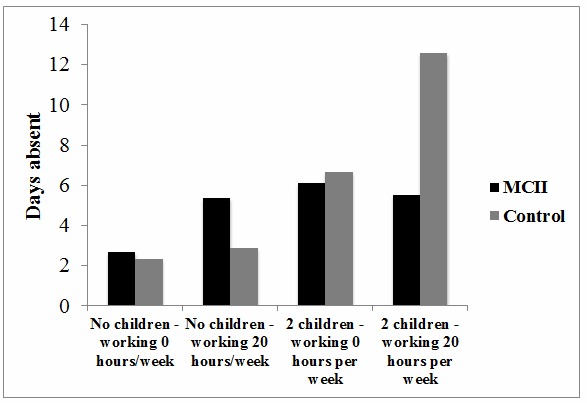Working adults these days, perhaps now more than ever, often feel pressed for time. Time pressure is even more intense for working parents. The persistent sense of too-much–to-do-in-too-little-time has spawned a time management industry that by some accounts has more books and related merchandise available than that targeted at weight loss.The wisdom captured by these materials often boils down to “prioritise and organise”: set clear objectives, have a tidy workspace, reduce procrastination. Some of these skills and strategies can be taught directly — those struggling with time management at the office are advised to designate one physical “inbox” and to keep a trash can within reach. Others are effectively facilitated with rules of thumb like the Two-Minute Rule. Ultimately, however, concrete skills and strategies only work to the extent that people are able to prioritise — to decide what is truly important, and — which is usually much harder — to let go of everything else, attractive though it may be.
In research recently published with my colleagues Gabriele Oettingen, Katie Guttenberg and Peter Gollwitzer, we took a somewhat different approach to helping people with time management. We had them do an exercise called MCII, short for “mental contrasting with implementation intentions,” (also referred to as WOOP) that involves several steps. First, people identify an important concern in their lives: a project at work, a daughter’s Halloween costume, feelings of distance from a spouse. Next, they fantasise about the best possible outcome of this concern: the boss’s praise for work well-done, the daughter’s appreciation, or renewed joy in a marriage, for instance. Then, this best outcome is mentally contrasted with, or held up against, the obstacles to success. The process of contrasting allows people to appreciate how other demands on their time threaten successful completion of the specific project, or how stress and moodiness make it hard to reconnect with loved ones.
Previous research suggests that seeing the discrepancy between rosy possible future and grim reality forces people to take stock. If they believe the fantasy is feasible, they emerge feeling strongly committed; but if success seems unlikely, they disengage. Strong commitment has clear benefits for time management; when people are energised by commitment, procrastination is less likely. But disengagement from appealing long-shots is perhaps even more valuable. By abandoning the vast majority of potential projects, regardless of how attractive they seem, people achieve the clarity — and time! — to succeed at the truly important. This exercise might help a working parent decide to outsource creation of the Halloween costume (after all, your child probably cares more about the costume than who made it), freeing both time and mental energy for other pursuits. (If you’re curious, try the exercise using the app here).
Mentally contrasting about important issues is only part of the exercise, though; it is followed by planning action, or making “implementation intentions.” The importance of planning is no secret; it is the cornerstone of most time management advice. Two things are different about planning in MCII. First, plans follow mental contrasting, so that they can direct energy specifically toward those (few) goals people have committed to pursue, and can target the obstacles that they identified. Second, plans in MCII have a specific format: If (situation) then (behaviour). Having identified stress-induced moodiness as a key obstacle to reconnecting with a spouse, for instance, one could plan: “If I come home from work feeling moody and see my partner, then I will give him a hug and tell him how happy I am to see him before I pour myself a glass of wine.”
Research suggests that linking situations and goal-directed behaviour in this way is particularly effective, because it allows people to act automatically in the crucial moment. Instead of having to think and react in challenging situations, they can put plans into action on autopilot. This saves resources, which as every time-pressed person can appreciate, is invaluable.
One of the studies we did was a randomised controlled trial (RCT) teaching MCII or a control exercise to the students at a vocational school for low-income women in New York City. Graduation from the four-and-a-half-month program has considerable employment and quality-of-life benefits, but students struggle to balance schoolwork with competing demands on their time, like part-time jobs and childcare. As Figure 1 shows, students with children (or with more children), and those who worked during the program, tended to miss more days of school than those without these competing demands, and those with both kids and jobs fared even worse. However, using the MCII strategy benefitted these high-risk students; presumably via better time management, their attendance did not suffer to the extent of similarly burdened students who were taught the control exercise instead of MCII. These findings make us optimistic that strategies like MCII can be used not only to improve time management, but to alleviate stress and help people reach their goals. That sounds like a good use of time.
Figure 1: from Oettingen, Gabriele; Heather Barry Kappes; Katie Guttenberg; & Peter Gollwitzer. (2015). Self-regulation of time management: Mental contrasting with implementation intentions (MCII). European Journal of Social Psychology, 45, 218-229.
♣♣♣
Notes:
- This article is based on the paper Self-regulation of time management: mental contrasting with implementation intentions, written by the author and her colleagues Gabriele Oettingen, Katie B. Guttenberg and Peter Gollwitzer. European Journal of Social Psychology, 45 (2). pp. 218-229. ISSN 0046-2772 (2015).
- This post gives the views of the reviewer, and not the position of LSE Business Review or the London School of Economics.
- Featured image credit: Sara V. CC-BY-2.0
 Heather Kappes is an Assistant Professor of Marketing in LSE’s Department of Management. She joined LSE in 2012 after earning a PhD in Social Psychology at New York University. She conducts research on motivation and goal pursuit. Dr. Kappes is particularly interested in identifying unintended and potentially undesired consequences of individual and group self-regulatory strategies. Her research integrates work from decision-making, consumer behaviour, organisational behaviour and psychology, and uses a variety of methodological approaches. She has published papers in a number of journals and her research has been covered in media outlets such as The Wall Street Journal, Scientific American, Psychology Today, and Forbes.
Heather Kappes is an Assistant Professor of Marketing in LSE’s Department of Management. She joined LSE in 2012 after earning a PhD in Social Psychology at New York University. She conducts research on motivation and goal pursuit. Dr. Kappes is particularly interested in identifying unintended and potentially undesired consequences of individual and group self-regulatory strategies. Her research integrates work from decision-making, consumer behaviour, organisational behaviour and psychology, and uses a variety of methodological approaches. She has published papers in a number of journals and her research has been covered in media outlets such as The Wall Street Journal, Scientific American, Psychology Today, and Forbes.






